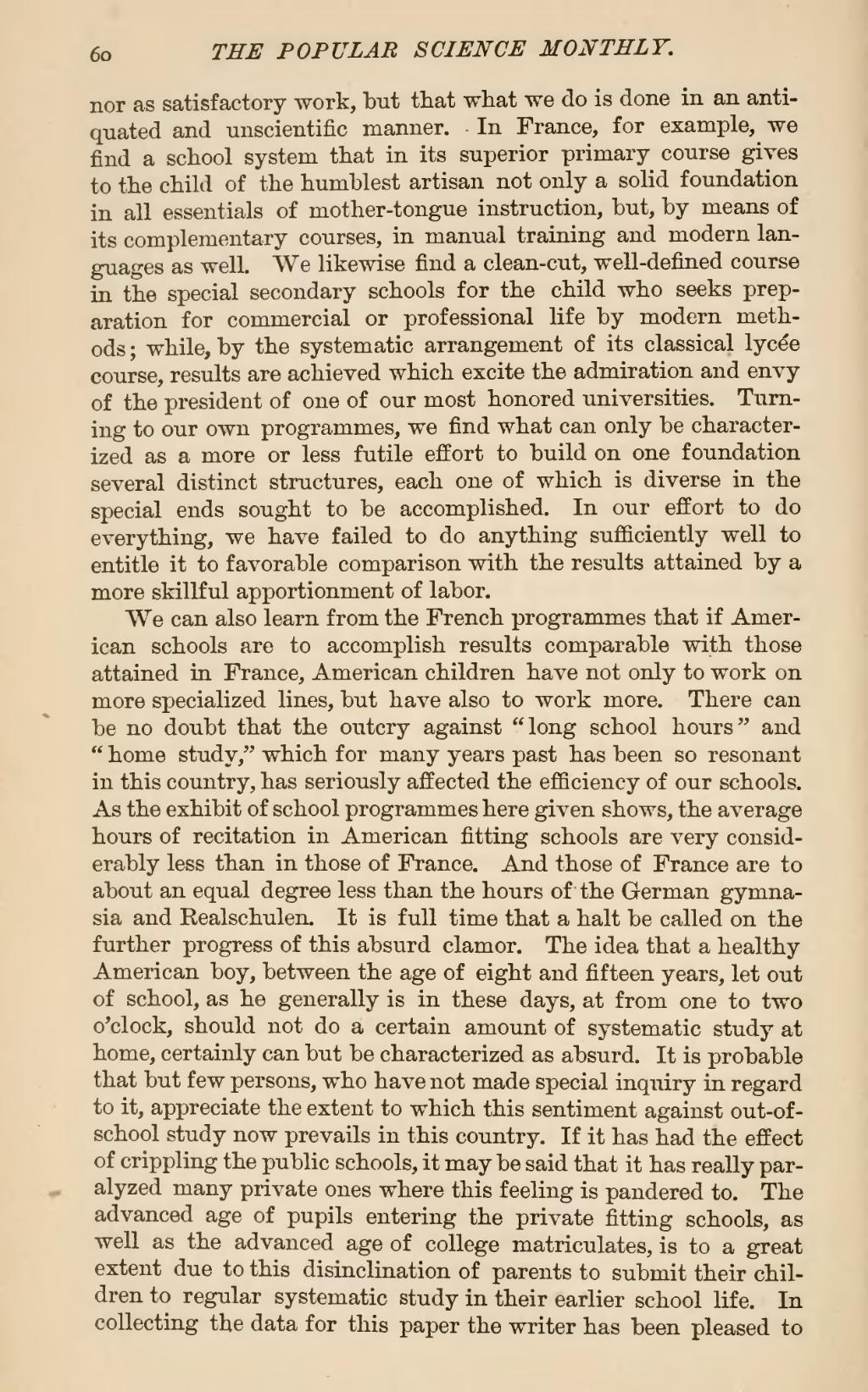nor as satisfactory work, but that what we do is done in an antiquated and unscientific manner. In France, for example, we find a school system that in its superior primary course gives to the child of the humblest artisan not only a solid foundation in all essentials of mother-tongue instruction, but, by means of its complementary courses, in manual training and modern languages as well. We likewise find a clean-cut, well-defined course in the special secondary schools for the child who seeks preparation for commercial or professional life by modern methods; while, by the systematic arrangement of its classical lycée course, results are achieved which excite the admiration and envy of the president of one of our most honored universities. Turning to our own programmes, we find what can only be characterized as a more or less futile effort to build on one foundation several distinct structures, each one of which is diverse in the special ends sought to be accomplished. In our effort to do everything, we have failed to do anything sufficiently well to entitle it to favorable comparison with the results attained by a more skillful apportionment of labor.
We can also learn from the French programmes that if American schools are to accomplish results comparable with those attained in France, American children have not only to work on more specialized lines, but have also to work more. There can be no doubt that the outcry against "long school hours" and "home study," which for many years past has been so resonant in this country, has seriously affected the efficiency of our schools. As the exhibit of school programmes here given shows, the average hours of recitation in American fitting schools are very considerably less than in those of France. And those of France are to about an equal degree less than the hours of' the German gymnasia and Realschulen. It is full time that a halt be called on the further progress of this absurd clamor. The idea that a healthy American boy, between the age of eight and fifteen years, let out of school, as he generally is in these days, at from one to two o'clock, should not do a certain amount of systematic study at home, certainly can but be characterized as absurd. It is probable that but few persons, who have not made special inquiry in regard to it, appreciate the extent to which this sentiment against out-of-school study now prevails in this country. If it has had the effect of crippling the public schools, it may be said that it has really paralyzed many private ones where this feeling is pandered to. The advanced age of pupils entering the private fitting schools, as well as the advanced age of college matriculates, is to a great extent due to this disinclination of parents to submit their children to regular systematic study in their earlier school life. In collecting the data for this paper the writer has been pleased to
